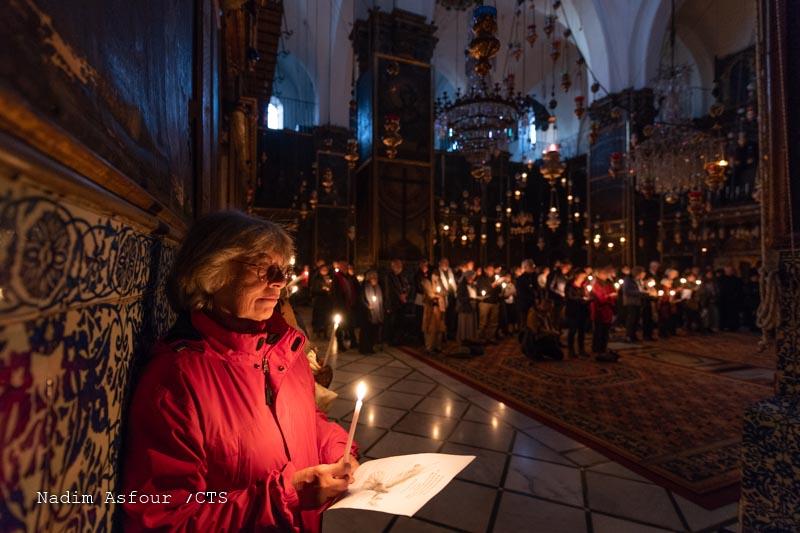The Week of Prayer for Christian Unity began in Jerusalem on Saturday 25th January in the Chapel of the Calvary. This important annual rendezvous of the thirteen Christian confessions of the Holy Land took place, as usual, a few days after the official date, to allow the Armenians to celebrate Epiphany.
“They showed us unusual kindness (Acts 28, 2)” is this year’s topic, chosen by the Churches of Malta and Gozo, in reference to the welcome given to the apostle Paul and the other people on board the ship which sunk off the island of Malta. The theme of the week of Unity aims to stress the importance of welcome, including with reference to the encounter between Christian communities of different confessions and cultures.
For the first day of the Week of Christian Unity in Jerusalem, the Greek Orthodox allowed the presence of others at their Compline service, which is held every Saturday in the place where Jesus was crucified.”We follow our tradition, but we hope that the day will come when we will be One Church, as in the first millennium,” commented the Greek Orthodox archbishop of Madaba, Aristovoulos.
“This moment has a special meaning for Christians all over the world, but especially for us, the Christians of Jerusalem,” Mons. SuheilDawani, the Anglican Bishop of Jerusalem, said on 26th January. “We are the body of Christ and when a part of the body suffers and rejoices, we all suffer and rejoice.” The Anglican Episcopal Church hosted a celebration in St. George’s Cathedral, which had its climax when the candles were lit by the leaders of the churches as a sign of peace.
On Monday 27th January, the prayer for Christian Unity moved to the Armenian church of St. James. FatherKoryounBaghdasaryanspoke of the role of the Armenian Church in the first centuries and the example of St Gregory.
The next day, it was the Lutherans who hosted the prayer in the church of the Redeemer, close to the Holy Sepulchre. Mons. Rainer Stuhulmanndwelled on the figures of the Magi, who came from different parts of the world and were witnesses of the Epiphany, and of the Child Jesus, the bearer of peace.
On 29th January, Mons. PierbattistaPizzaballa, in the church of the Latin Patriarchate of Jerusalem, decided to make a gesture with a symbolic meaning: he broke bread and distributed it as a sign of fraternity and charity between the heads of the Churches and all those present. “In the past, the Church of Jerusalem has undergone the result of the divisions between the Churches,” said the Apostolic Administrator of the Latin Patriarchate. “Who knows whether in the future it will not be possible that a real renewal of the relations between us cannot be sparked off from here, from our Church.”
30th January is the day of prayer at the Cenacle, where official celebrations are allowed only a few times a year. The prayer was guided by the Benedictine monks of the Basilica of the Dormition of the Virgin Mary.
The Week of Prayer for Christian Unity continues on 31st January in the church of St Mark, with the liturgy of the Syrian Orthodox. The following day it will be the turn of the Ethiopians, who will lead the prayer in the Ethiopian Orthodox church of Jerusalem.
The week will be brought to a close by the largest community in the Holy Land: the Melkites. The appointment is for 2nd February in the Greek Catholic church of the Annunciation in the Old City, to ask once again for peace and unity for the Christians of the Holy Land and the whole world.
Beatrice Guarrera


